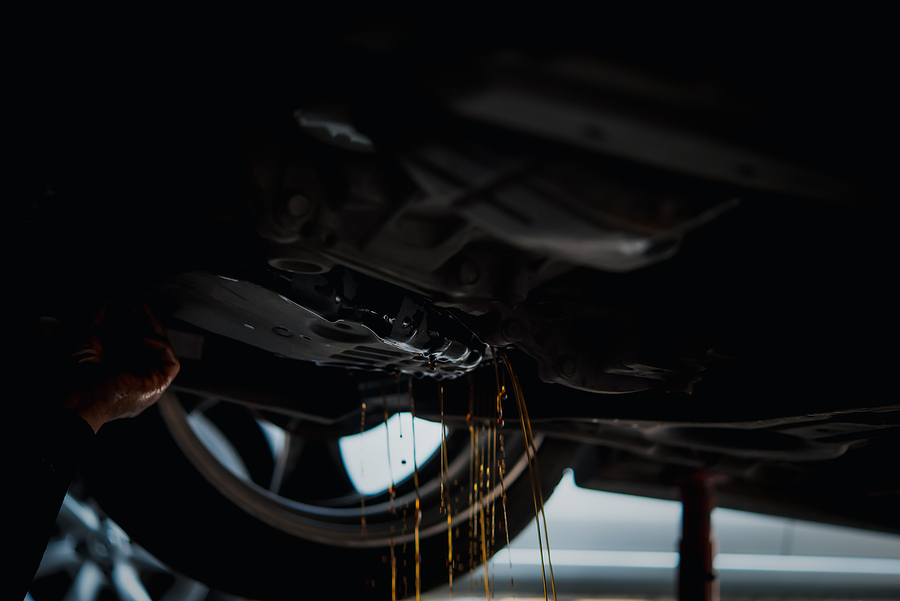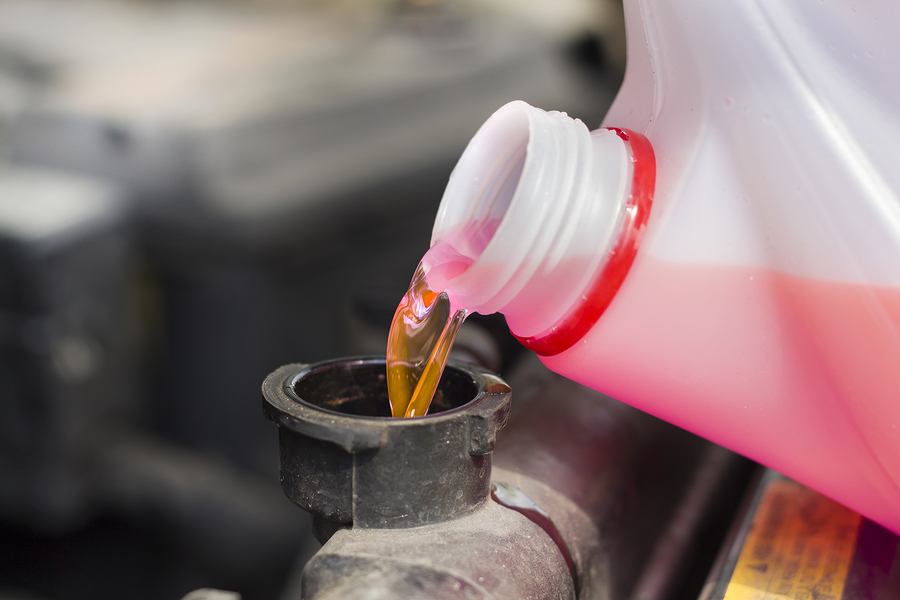When it comes to your car’s transmission, there is nothing more important than ensuring it maintains proper fluid levels. After all, transmission fluid is one of the seven vital automotive fluids that every vehicle needs to operate safely and efficiently. One of the most common causes of lost transmission fluid is a leak.
Continue reading to learn what you need to know about transmission fluid leaks, including common facts like how to detect them, and what to do if your car has one.

How to Monitor Transmission Fluid
There are many factors that determine how often you should monitor a vehicle’s transmission fluid levels. The frequency of transmission fluid checks primarily depends on the make and model of the vehicle, however, there could be several other more specific factors that you need to know. For instance, most instructions tell you to leave the car engine on while checking the transmission fluid; but, if you are driving a Honda, the engine needs to be turned off.
If you drive a Dodge model, you have to put in neutral while applying the emergency brake in order to check your transmission fluid. With all the different guidelines and variables that apply to each make and model vehicle and transmission, it is strongly suggested to always refer to your vehicle’s owners’ manual for the right information. You can also contact a local auto shop for professional advice you can trust. Many mechanics offer free fluid checks, so be sure to take advantage of this when it is time your vehicle is in the shop!
Transmission Leak Dangers
Minor leaks can easily go unnoticed to an untrained eye. In fact, many drivers on the road have automotive fluid leaks and don’t even realize they are there; but it is never safe to drive with a leak, especially if it’s coming from the transmission. Although minor leaks are not likely to impose an immediate danger on the road, they will lead to more severe damages to other car parts, which can cause serious car accidents and injuries, or cost you thousands of dollars in needed repairs and part replacements. These damages are costly, but can fortunately be avoided by not operating the vehicle until it is repaired.
Transmission Leak Detection
The most common sign of a transmission leak is seeing the actual transmission fluid seeping or puddling beneath a car. Transmission fluid is dark red in color. When clean, it is a light pink or red, but when dirty, it will appear burnt orange or brown. If you detect a leak in your transmission, do not continue driving the vehicle. If you are on the road, pull over and contact a 24 hour roadside assistance company. They may be able to patch up your leak and replace your fluid well-enough to get you home or to the nearest mechanic. Otherwise, they can tow your vehicle for you. If you are at home, and notice the leak on your driveway, you should not drive your car. Instead, contact a tow truck to have your car towed to your auto repair shop of choice.
Where to Get Fast Towing and Roadside Assistance in Indianapolis, Indiana
Call Zore’s Towing at 317-247-8484 for 24 hour roadside assistance and towing in Indianapolis and throughout Central Indiana. We are fully-equipped with the right fleets to assist cars, trucks, motorcycles, boats, construction equipment, trailers, vans, semi-trucks, airplanes, and much more. Since 1927, we have a provided a wide range of towing and roadside assistance services, and for the past 90 years, we have earned a reputation for trusted service at a fair price! We operate 24 hours a day, 7 days a week, and 365 days a year, so you can always count on us. Request a free estimate, today.


